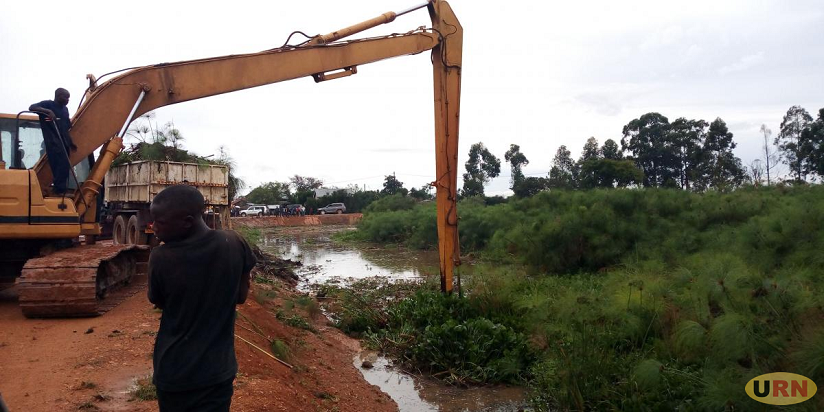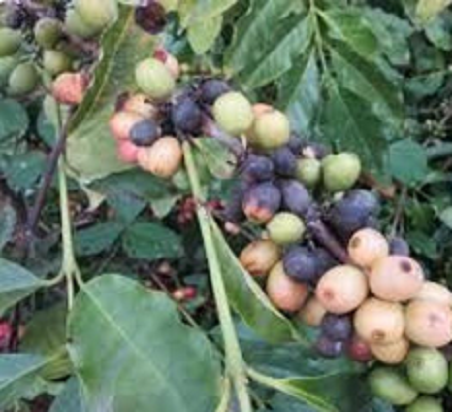The excavators deployed to clear aquatic weeds at Kamuwunga landing site in Kalungu district
The Egyptian government has offered to support the clearing of the Kamuwuga Landing Site in Kalungu district, which has been overrun by the water hyacinth and other aquatic weeds.
The landing site, which is located in Lukaya Town Council in Lwera wetland is the main fishing ground for Tilapia and catfish in Kalungu district. But, it is currently clogged with heavy aquatic weeds, spreading over 200 meters into the lake.
It is on the basis of this that the Egyptian Ministry of Water Resource and Irrigation has undertaken to clear the landing site of the weeds. Dr Mohamed Nazeeh Tawfeek, the Egyptian Ambassador to Uganda says that the project will be executed as part of the USD 23.9 million grant that Egypt committed towards aquatic weed control, the establishment of fish farms and the development of fishing villages in Uganda.
Dr Tawfeek, who witnessed the commencement of the project activities on Thursday, indicated that the support is part of bilateral cooperation intended to conserve the tributaries of River Nile and great lakes from any interference.
State Minister for Fisheries Hellen Adoa says the ministry is looking up to the project to address the apparent challenge of waters submerging critical landing sites especially during the rainy seasons that have caused exceptional raise in water levels. She explains that the government cannot solely deal with the problem of aquatic weeds which have had grave effects on fish stocks, water transport, and power generation.
Adoa, however, adds that they are going to roll out operations to ensure that people stop destroying buffer zones as a way to save the river banks and basins from the silting.
Engineer Dominic Mucunguzi, the Egypt-Uganda Aquatic Weed Control Project Coordinator says that they also intend to convert the aquatic weed materials removed from the lake into fertilizer as well as having it used for the generation of biogas, to encourage the local communities to remove the weeds whenever they resurface.
Ahmed Walakira, one of the fishermen at the Kamuwunga landing site says the project is going to help them fully regain their livelihoods that were largely dependent on the lake. According to him, the presence of water weeds had made it difficult for fishing boats to operate in the area, and that many people were also giving up on fishing.
–URN





